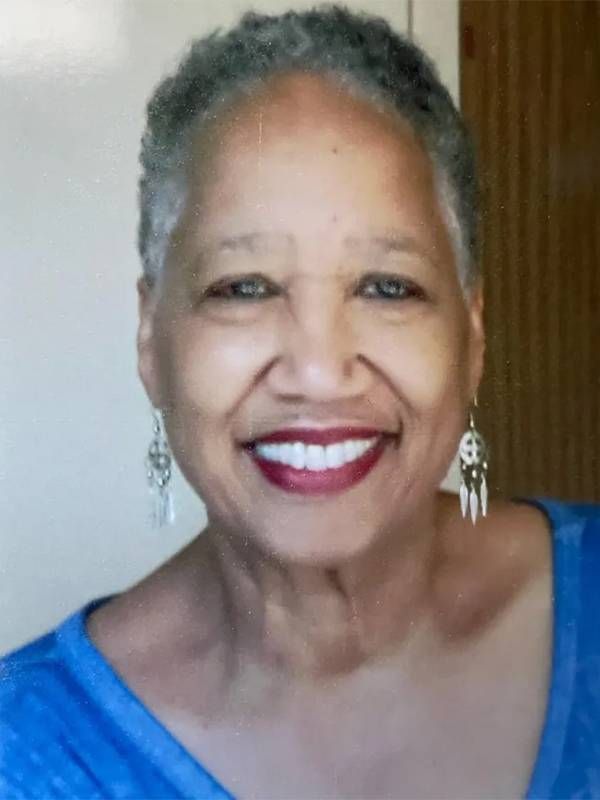End-of-life Planning Can Help Ease Family Burdens
From health care directives to funeral planning, preparation can bring peace of mind
It may seem morbid to some, but Sandra Freeman has her funeral all planned out. Following her eventual cremation, family and friends will share stories and enjoy food with her favorite artist Nancy Wilson playing in the background.

The retired 70-year-old Minneapolis resident is in good health, but quoting her father, she jokes, "None of us is getting out of here alive."
"He says, 'Oh, we'll cross that bridge when we get to it.' And I let him know, at 94, you're on the bridge."
Preparation is a lesson hard learned. Freeman says she has lost many loved ones over the years, only a small fraction of whom had planned for their death. In one instance, an aunt struggled to access bank accounts and insurance policies following the death of her husband, who left few instructions on where to access things.
At 27, Freeman's sister unexpectedly passed with no directive for her young child beyond a verbal promise that her sister should raise her child. Freeman finds many are reluctant to discuss, let alone plan for, their inevitable fate.
Despite his wise words, Freeman's father had long avoided putting his affairs in order. The 94-year-old is in good shape and still working at his tax business.
"He says, 'Oh, we'll cross that bridge when we get to it," Freeman said, "And I let him know, at 94, you're on the bridge."
Planning with an 'A to Z' Outline
She accompanied him to a funeral home near their home in Chicago where they planned with a prepared "A to Z" outline. Beyond learning of his strong preference for burial over cremation, Freeman said she was able to learn and settle information she would never have known otherwise to give her father a proper send-off.
Writing his obituary together, she discovered she had not known full names of his parents or his favorite song.
Though Freeman spends much time preaching to her fellow elders at the YMCA in Minneapolis, she says planning is for people of all ages. "People think that if they don't have any money, they don't need to have a will. Everybody needs a will. Everybody needs a health care directive," she said.
Planning for death can include a variety of topics. Preference for burial or cremation is one example. Health care directives describe the actions a person would want taken for medical care if unable to make decisions for themselves, such as do not resuscitate orders or organ and tissue donation.
You can assign beneficiaries or executors of your legacy with a will, determine what happens to your social media, and, like Freeman, detail your wishes for your funeral.
Freeman recalls her mother-in-law leaving behind a folder with comprehensive instructions. "She even wanted to be buried in her pink nightgown and pink slippers which I said, 'You guys are not going to do that.' Oh, yes, they did. Because she had it written," Freeman said.
Keep Documents in a Safe Place and Update Regularly
Freeman keeps a similar folder in a secure place with everything someone might need to know, like bank information, the location of insurance policies, and copies of legal documents. Her medical provider has her healthcare directive on file to refer to in case of emergency.
When it comes to bank accounts, Freeman says planning reduces the stress of navigating the complicated process of recovering someone's funds from the state or bank, where funds might default without "payable-on-death" designations. She recommends updating wills periodically, ruefully sharing about a friend's untimely death that left all his estate to a long-estranged ex-girlfriend whom he forgot to remove as beneficiary.

Freeman also advised that planning helps ease the family's grieving. With the weight of scrambling to organize — and fund — an often-expensive ordeal off their shoulders, her mother-in-law's passing left family less broken up, she felt.
Funerals can be pricey. The National Funeral Directors Association reports the median cost of an adult funeral in 2021, with viewing and burial, was $7,848. This cost does not include cemetery plot, funeral home staffing, or monument costs. Freeman noted costs of up to $20,000 for people seeking the highest quality funeral for a loved one.
Consider the Financial Angle of Funerals
Tracy Wesley is the CEO and executive director of Estes Funeral Chapel, a fixture of North Minneapolis. He has been working in the industry for 36 years, both on the management side and as a mortician licensed to prepare bodies for services. He meets with families about conducting funeral services, including grief support and pre-planning services.
"It's really not a hard process," he said. "It's more of just a conversation of what that individual is looking for and then selecting the right route that will fall in line with what their thoughts are for when that time comes."
Wesley recommends two foundational paths to prepare for death: life insurance policies or pre-planning with a funeral home. Depending on the deceased person's coverage, life insurance would cover the cost of a funeral service or cremation, in addition to providing a lump sum of money for beneficiaries.
If a person does not have life insurance or cannot qualify, meeting with a funeral counselor for pre-planning allows people to make advance payments for their desired service, with payments going into a trust account and transferrable to other funeral homes should a person move elsewhere.
County or state assistance can help cover costs, Wesley said, though they have varying dollar amounts and guidelines to qualify. There are also limited resources for deaths of special circumstances, like veterans or homicide victims.
Freeman used attorneys to create her will and notarize certain documents, but she recommends online resources or books to keep it free or low-cost. It can be challenging, but you only have to go through planning once, she said.
"Once you get it settled, put it away. You never have to mention it."
Editor’s note: This story was originally published in the Minnesota Spokesman-Recorder.

